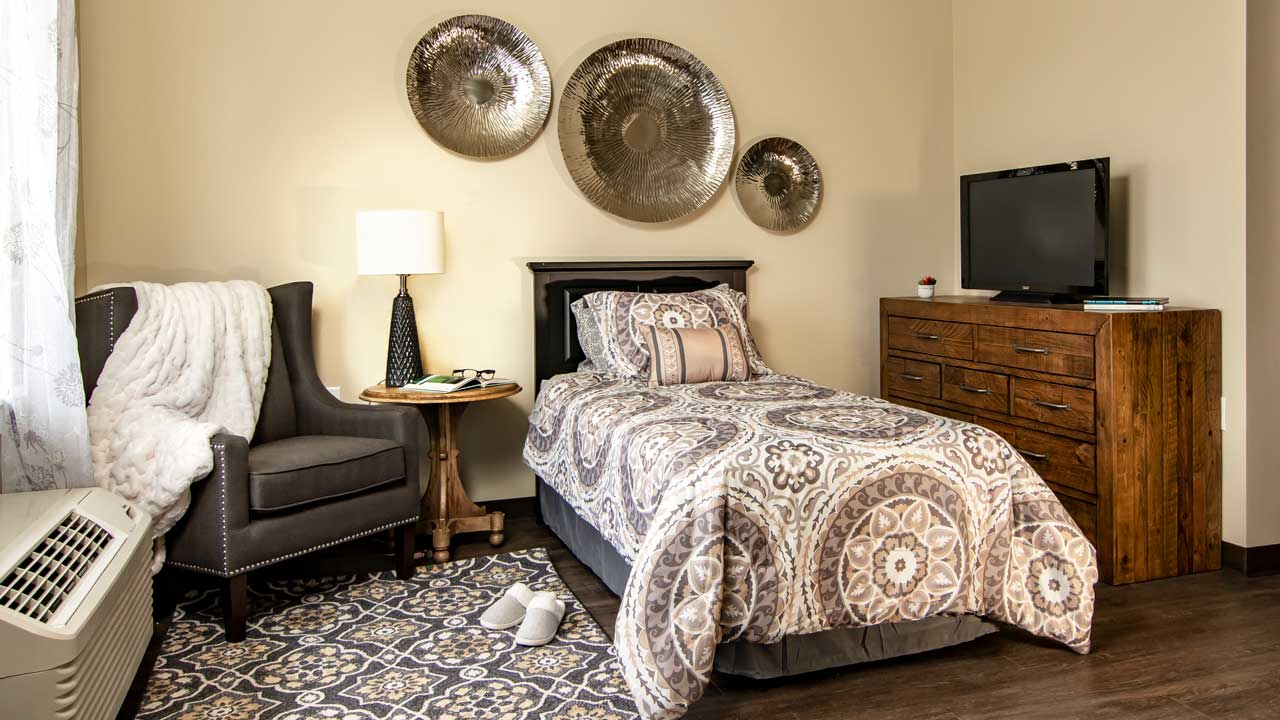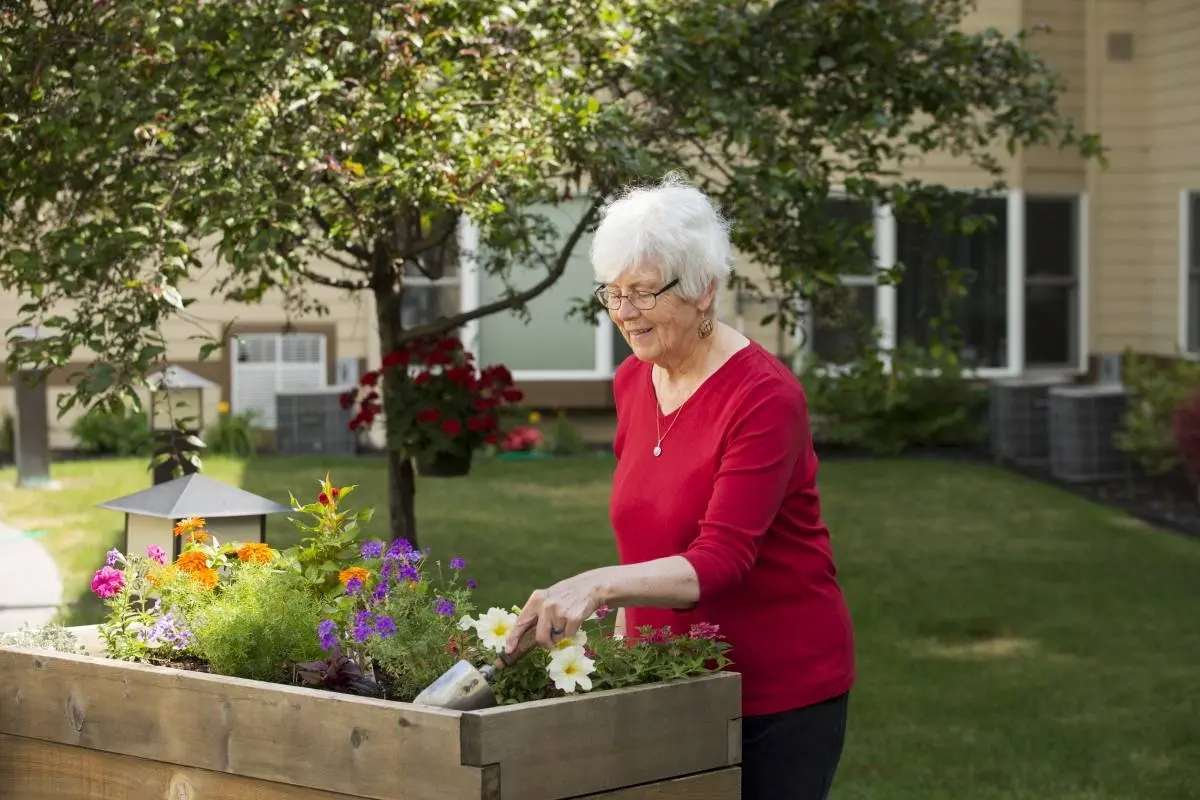Everything About Memory Treatment Providers: Why Tiny Memory Care Residences Are a Wonderful Option
Memory care services play a necessary role in sustaining people with Alzheimer's and dementia. Small memory treatment homes attract attention for their tailored strategy and intimate setup. With reduced staff-to-resident ratios, these homes foster more powerful connections and tailored treatment. Homeowners gain from enhanced social communications and a secure atmosphere. As family members discover options, recognizing the distinct advantages of tiny memory treatment homes becomes important. What variables should be considered when selecting the right home?
Comprehending Memory Care Solutions
While several may know with basic senior treatment choices, recognizing memory care solutions is important for households facing the difficulties of cognitive decline. Memory treatment particularly deals with individuals with problems such as Alzheimer's condition and various other types of mental deterioration. These solutions supply an organized atmosphere that concentrates on improving the top quality of life for homeowners with specialized treatment and support.Memory care centers are made to assure safety and safety, commonly including protected atmospheres to protect against roaming. Trained personnel members are offered around the clock to assist with day-to-day tasks, medication management, and personal treatment. Additionally, memory care programs commonly include cognitive stimulation activities, customized to engage homeowners and promote mental well-being. Families can take advantage of understanding these solutions, as they allow educated decisions concerning their loved ones' care, making certain that their specific needs and preferences are attended to in a thoughtful and supportive way.
The Benefits of Small Memory Treatment Houses
Tiny memory care homes supply distinctive advantages that can considerably boost the lifestyle for citizens with cognitive impairments. One significant benefit is the intimate environment, which enables customized interactions among personnel and locals. This smaller sized setting promotes purposeful partnerships, lowering feelings of seclusion and anxiety often experienced by people with memory issues.Additionally, the lower staff-to-resident ratio in little memory care homes makes it possible for caretakers to give even more mindful supervision and support. This strategy not just enhances safety yet also advertises a complacency for the residents.Moreover, small memory care homes can adjust rapidly to the unique demands and preferences of each citizen, permitting a much more homey ambience. Such an atmosphere can urge social interaction and participation in tasks, ultimately enriching the everyday experiences of those living with cognitive disabilities.
Personalized Care Plans for Citizens
Individualized care strategies are essential in memory care homes, as they accommodate the unique demands and preferences of each citizen. These strategies begin with comprehensive assessments carried out by experienced specialists, who review cognitive capabilities, case history, and individual passions. This customized approach assurances that care is not just reliable but additionally considerate of each person's dignity and autonomy.Moreover, customized treatment plans are versatile, permitting adjustments as locals' demands develop gradually. This adaptability cultivates a complacency and knowledge, which is essential for individuals dealing with memory challenges. Caregivers are trained to carry out these strategies constantly, giving assistance that aligns with the homeowners' routines and preferences.Ultimately, customized treatment plans enhance the lifestyle for locals by promoting self-reliance, wellness, and involvement, making them a basic facet of memory treatment services in small memory care homes.
Producing a Home-Like Setting
Creating a home-like setting is critical for cultivating comfort and knowledge in memory care setups, as it substantially influences locals' emotional health. Small memory care homes often prioritize personalized touches, such as cozy color combinations, household images, and familiar furniture plans, which help locals really feel more secure. Incorporating components similar to a standard home, like comfy space and public areas, motivates a feeling of belonging.Moreover, making use of natural light and outside rooms can enhance the environment, advertising relaxation and peace. Employee play a substantial duty in preserving this setting by engaging with locals in a thoughtful manner, treating them like family. Routine tasks, such as food preparation or gardening, can also contribute to a home-like feeling, offering opportunities for homeowners to join significant experiences. On the whole, creating a nurturing atmosphere sustains cognitive feature and psychological stability, making it a vital aspect of memory care services.
Boosted Social Communication and Community
Boosted social communication and community are crucial parts of memory treatment solutions. By promoting customized social interaction and developing a family-like atmosphere, these solutions promote significant links amongst homeowners. Group events and tasks even more encourage participation, assisting individuals really feel more consisted of and sustained.
Personalized Social Engagement
While social interaction is important for overall well-being, many people with memory problems commonly battle to involve meaningfully with others. Individualized social interaction in memory care homes addresses this challenge by developing customized activities that satisfy residents' unique passions and capacities. By concentrating on individual choices, caretakers can foster links that reverberate deeply with each person. Tasks such as art treatment, music sessions, and led conversations promote cognitive excitement and emotional expression. Additionally, small group setups motivate camaraderie and permit for even more intimate interactions, boosting feelings of belonging. This strategy not just fights feelings of seclusion however also encourages residents to keep a sense of identity, ultimately contributing to improved psychological health and wellness and lifestyle.
Family-like Ambience
In a memory treatment setting, promoting a family-like ambience significantly improves social communication and builds a feeling of community amongst locals. Smaller memory treatment homes frequently focus on intimate environments, permitting homeowners to form closer links with each other and team members. This nurturing atmosphere promotes depend on, which is vital for people with memory disabilities. Citizens are most likely to talk and share experiences, producing a supportive network that eases feelings of solitude. The knowledge of shared spaces and routines adds to a feeling of belonging, even more urging social interaction (personalized memory care). In such setups, psychological bonds thrive, bring about improved overall wellness and a better of life for citizens as they navigate their everyday experiences together
Group Activities and Occasions

Safety And Security and Safety Features in Tiny Houses
Several see this here small homes designed for memory care include essential safety and safety attributes to guarantee the health of citizens. These homes commonly use secure entrance and leave factors to protect against wandering, a typical problem amongst individuals with memory problems. Furthermore, surveillance systems and alarm system devices improve tracking, guaranteeing that staff can quickly react to any kind of unusual activities.Interior formats are tailored for security, with reduced dangers such as sharp corners and clutter-free paths. Handrails and non-slip floor covering are normally mounted to reduce the risk of drops. Team member are learnt emergency situation procedures, ensuring they are planned for different situations.Moreover, personalized care plans might consist of analysis of individual security demands, offering tailored solutions for each and every citizen. On the whole, these security and protection functions produce a nurturing environment where homeowners can prosper while preserving their self-respect and independence.
How to Pick the Right Memory Treatment Home
Exactly how link can households assure they pick one of the most appropriate memory care home for their loved ones? The decision requires cautious consideration of a number of factors. Family members need to evaluate the facility's personnel certifications and training, making certain that caregivers are experienced in handling memory-related problems. Next off, it's vital to examine the home's environment, concentrating on safety attributes and whether it fosters a sense of area and belonging. Going to the center can provide insight right into everyday activities and the social ambience, which are important for mental excitement and emotional wellness. Additionally, families should inquire about the care strategies used, ensuring they are tailored to individual demands. Ultimately, thinking about the home's area and availability for family visits can add to a smoother shift. By resolving these facets, families can make an informed decision that prioritizes their enjoyed one's comfort and lifestyle in a memory treatment setup.
Frequently Asked Inquiries
What Certifications Should Team Members in Memory Care Residences Have?
Employee in memory care homes must possess appropriate accreditations, experience in dementia treatment, solid communication skills, and compassion. Continuous training in behavior monitoring and restorative treatments boosts their ability to sustain locals successfully.
Exactly How Do Memory Treatment Services Differ From Standard Assisted Living?
Memory care services concentrate especially on individuals with memory impairments, providing customized support and organized environments. In contrast, conventional assisted living supplies general aid with day-to-day tasks, doing not have the customized strategy essential for those with cognitive difficulties.
What Sorts of Tasks Are Supplied in Memory Care Residences?
Memory treatment homes generally offer a variety of activities made to involve residents. Typical alternatives include art treatment, music sessions, cognitive games, exercises, horticulture, and gatherings, all intended at boosting wellness and cognitive function.
Can Residents Bring Their Own Personal Belongings to Memory Treatment Residences?
Citizens can generally bring their own personal belongings to memory treatment homes, permitting them to customize their space - personalized memory care. This technique helps produce a familiar atmosphere, promoting comfort and a feeling of identification for the individuals

How Are Member Of The Family Included in the Care Process?
Member of the family play a necessary function in the treatment process, usually joining decision-making, participating in treatment meetings, and offering emotional assistance. Their involvement fosters a collective atmosphere, improving the homeowner's total well-being and quality of life. While numerous might be familiar with basic elderly treatment choices, recognizing memory treatment services is essential for family members encountering the challenges of cognitive decline. These solutions give a structured environment that concentrates on enhancing the high quality of life for citizens via specialized treatment useful reference and support.Memory care centers are designed to guarantee safety and safety and security, often including secured settings to protect against wandering. Individualized treatment plans are essential in memory treatment homes, as they provide to the unique requirements and preferences of each homeowner. Staff members in memory care homes must have appropriate certifications, experience in mental deterioration treatment, strong interaction skills, and concern. Memory care services concentrate specifically on people with memory impairments, offering specialized support and organized settings.
Comments on “Boutique Memory Care Communities That Provide a Cozy Environment”